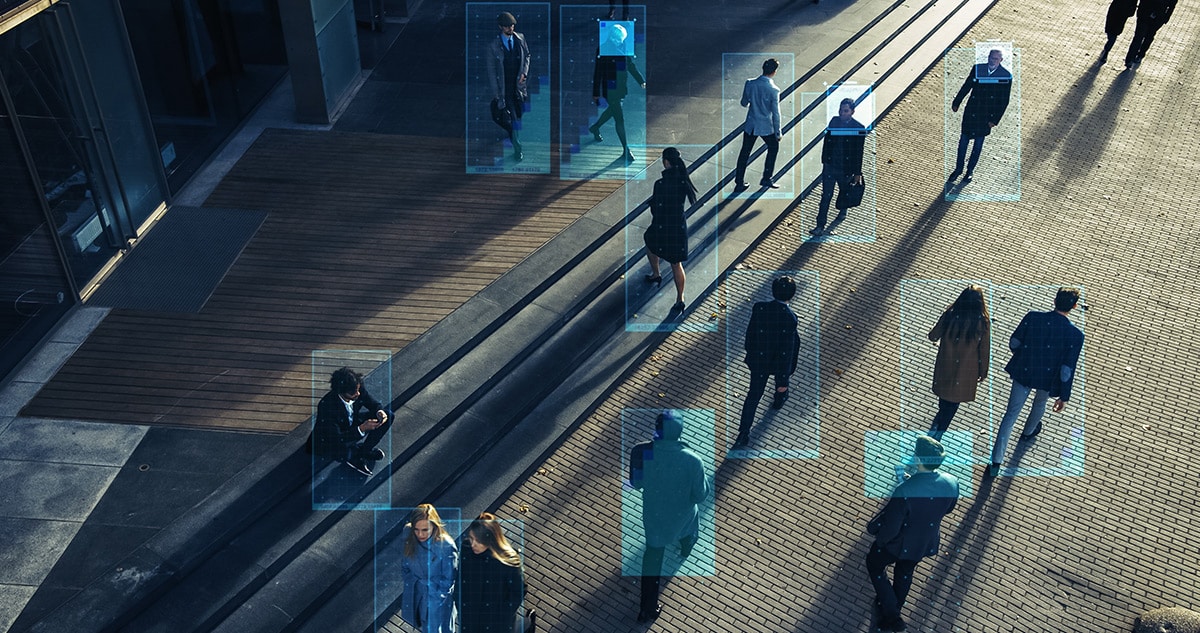In today’s fast-evolving world, businesses face increasingly complex threats, from theft and vandalism to workplace safety concerns and cyberattacks. As we approach 2025, AI-powered hybrid security systems are transforming how companies protect their operations.
These advanced security systems integrate AI-driven tools like real-time surveillance, predictive analytics, and automated monitoring with the adaptability of skilled personnel. Whether safeguarding a single facility or managing a network of sites, hybrid security offers scalable, efficient, and future-proof solutions to protect your business assets, employees, and data.
From retail environments to manufacturing plants, hybrid security systems ensure protection in high-risk areas, providing peace of mind and measurable improvements in operational efficiency.
AI-Powered Surveillance: Smarter Monitoring for Better Protection
AI-powered cameras analyze live video feeds, detecting unusual activity such as unauthorized access or suspicious movement. These systems identify potential threats in real-time, ensuring faster responses to prevent escalation.
For instance, in a warehouse, AI-enhanced cameras can monitor areas with high-value inventory, flagging after-hours activity or attempts to access restricted zones. In retail, AI systems can detect suspicious patterns like loitering near cash registers or excessive product handling, alerting staff to intervene before incidents occur.
AI doesn’t just improve security; it reduces human error and fatigue associated with manually monitoring hours of footage, freeing security teams to focus on immediate priorities and strategic initiatives.
Advanced Access Control
Access control systems using AI-enhanced biometric authentication and mobile credentials replace outdated keycards. AI-driven visitor management ensures a seamless, secure process, from sign-ins to compliance tracking.
For example, a corporate headquarters can use facial recognition systems to grant employees access to specific areas based on their roles while flagging unauthorized attempts to enter restricted zones. These systems manage multiple entry points efficiently, enhancing security without slowing operations or inconveniencing authorized personnel.

Predictive Security Analytics: Staying Ahead of Threats
Predictive analytics takes business security systems from reactive to proactive. By analyzing historical data, AI can forecast risks and pinpoint vulnerabilities. This means identifying theft patterns, recurring unauthorized access attempts, or even predicting equipment failures before they occur.
Industries like finance, healthcare, and retail rely on predictive tools to prioritize high-risk areas, reduce response times, and safeguard sensitive data and assets. For instance, a financial institution might use predictive analytics to detect irregular activity in secure vaults, triggering preventative measures before any loss occurs.
In the hospitality industry, predictive analytics helps hotel chains monitor guest traffic, minimizing unauthorized access during peak times. This improves both security and guest satisfaction, creating a safer and more welcoming environment.
This proactive approach minimizes disruptions, strengthens operational resilience, and provides peace of mind for business owners navigating an increasingly complex threat landscape.
Smart Buildings and Security: The Perfect Pair for 2025
In 2025, IoT-enabled smart buildings will become a standard for businesses seeking sustainable and secure solutions. Hybrid security systems integrate seamlessly with smart technologies like lighting, HVAC systems, and occupancy sensors.
For instance, AI tools can detect unauthorized access in a smart building and trigger automated responses such as locking doors, adjusting lighting, or alerting security personnel. These integrations provide a dual benefit: enhanced security and improved energy efficiency.
Imagine a high-rise office building with thousands of occupants. Smart building systems integrated with hybrid security can optimize power usage by adjusting lighting and HVAC settings based on real-time occupancy data while ensuring all access points are secure after hours, improving safety and reducing operating costs.
Smart buildings with hybrid security also leverage analytics to optimize space usage, monitor environmental factors, and ensure health and safety regulation compliance. These capabilities align with the growing demand for green initiatives and energy-efficient business operations.
Cyber-Physical Convergence: Unified Protection Across Domains
The line between physical security and cybersecurity is blurring as businesses face sophisticated, multi-faceted threats. Hybrid security systems bridge these domains, protecting physical assets and digital infrastructure.
For example, an AI system monitoring a facility’s network traffic can work alongside access control tools to detect and address threats in real-time. If an unusual login attempt occurs simultaneously with an attempt to access a secure physical area, the system can block access and alert security teams to investigate.
This convergence is especially critical for the financial services, healthcare, and logistics industries, where uninterrupted operations and data security are paramount. Retail businesses with e-commerce and brick-and-mortar components also benefit from unified systems that monitor both environments cohesively.
Cyber-physical security ensures businesses maintain a consistent and comprehensive approach to threats, reducing vulnerabilities across all operational layers.

AI and Ethics: Responsible Implementation of Business Security Systems
While AI-powered hybrid security systems provide unprecedented benefits, their implementation requires thoughtful consideration of ethics and privacy. Businesses must remain transparent about how they collect, use, and store data to maintain trust with employees, customers, and stakeholders. Clear communication about privacy policies and visible safeguards ensures responsible and respectful use of these advanced technologies.
Compliance with data protection regulations, such as GDPR and HIPAA, is critical for organizations handling sensitive information. Training programs should educate security personnel on ethical AI practices, emphasizing fairness and respect for individual rights.
Additionally, businesses should prioritize systems with built-in safeguards against bias and misuse. AI algorithms should be tested regularly to ensure they function equitably, avoiding unintended discrimination in access control or threat detection. By fostering trust and implementing systems ethically, businesses strengthen their reputations and build long-lasting relationships with clients and employees alike.
Get Ready for the Future: Embrace Hybrid Security for Your Business
Hybrid security systems represent the future of business protection by combining AI’s precision with human expertise. These systems go beyond traditional methods, offering real-time insights, proactive solutions, and seamless integration with smart building technologies.
Whether you’re securing a single location or a global network, hybrid systems provide scalable, efficient, and cost-effective options. Businesses that adopt these advanced solutions position themselves as industry leaders, prepared for the challenges and opportunities of the future.
At ABF Security, we specialize in designing and implementing customized hybrid security solutions for businesses. Contact us today to explore how we can help protect your business in 2025.

